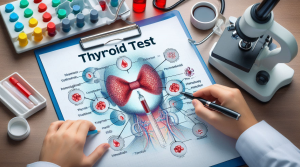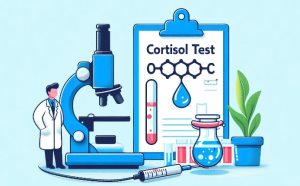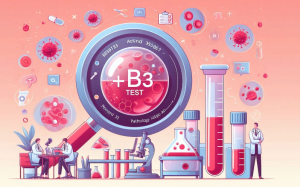What is a Vitamin E Test?
A Vitamin E Test measures the levels of Vitamin E (specifically, alpha-tocopherol) in your blood. Vitamin E is a fat-soluble vitamin that acts as a powerful antioxidant, protecting cells from damage caused by free radicals. It also plays a role in immune function, cell signaling, and various metabolic processes.
Why Do You Need a Vitamin E Test?
Your healthcare provider might order this test if they suspect:
- Vitamin E deficiency: Symptoms like muscle weakness, loss of coordination, vision problems, or numbness and tingling might necessitate this test.
- Monitoring vitamin E supplementation: Individuals taking high doses of vitamin E supplements need regular monitoring to avoid potential toxicity.
- Assessing certain medical conditions: Conditions like fat malabsorption disorders or liver diseases can affect vitamin E levels.
- Evaluating premature infants: Premature babies often have low vitamin E levels and may need monitoring.
What Does a Vitamin E Test Measure?
The test primarily measures the concentration of alpha-tocopherol, the most active form of vitamin E, in your blood. Indirectly, it can reveal:
- Vitamin E status: Whether you have sufficient, deficient, or excessive levels of Vitamin E.
- Potential health risks: Both deficiency and toxicity can have adverse health effects.
- Underlying conditions: Abnormal levels might signal issues with nutrient absorption or other medical issues.
Preparing for the Test
Usually, no special preparation is needed for a Vitamin E test. However, some labs might require:
- Fasting: Abstaining from food and drinks (except water) for a specified time before the test.
- Avoiding vitamin E supplements: Stop taking vitamin E supplements for a certain period as instructed by your doctor.
Understanding the Results
Normal vitamin E levels typically range between 5-20 mcg/mL. The interpretation can vary depending on the lab and other factors.
- Low levels (deficiency): This might lead to symptoms like muscle weakness, vision problems, and neurological issues.
- High levels (toxicity): Excessive vitamin E intake, especially from supplements, can increase the risk of bleeding and other health problems.
- Normal levels: Indicate adequate vitamin E status.
Risk Factors and Prevention
Factors increasing the risk of vitamin E deficiency include:
- Fat malabsorption disorders: Conditions hindering fat absorption can also affect vitamin E uptake.
- Premature birth: Premature babies often have low vitamin E stores.
- Certain genetic disorders: Rare genetic conditions can affect vitamin E metabolism.
Prevention and management involve:
- Balanced diet: Include plenty of vitamin E-rich foods like nuts, seeds, vegetable oils, and leafy green vegetables in your diet.
- Supplementation: If dietary intake is insufficient or you have specific risk factors, your doctor might recommend vitamin E supplements.
- Addressing underlying conditions: Treating any conditions causing malabsorption or affecting nutrient uptake is important.
- Avoiding excessive supplementation: High doses of vitamin E supplements can be harmful. Consult your doctor before taking any supplements.
Remember, maintaining adequate vitamin E levels contributes to overall health. Regular check-ups and following your healthcare provider’s recommendations are important, especially if you have risk factors for deficiency or are taking vitamin E supplements.

 7351982473
7351982473











